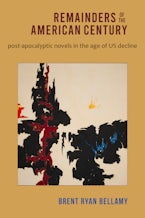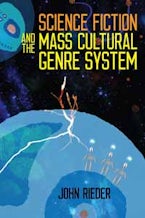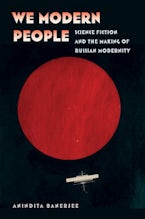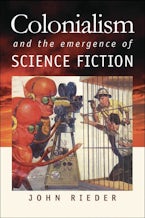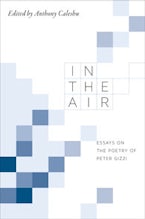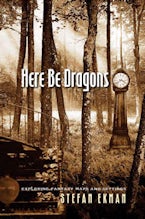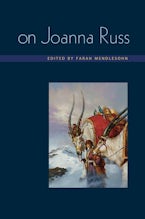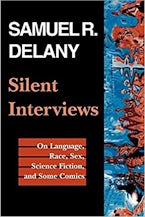- Home
- literary criticism
- How Reading Is Written
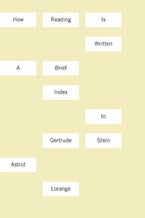
How Reading Is Written
A Brief Index to Gertrude Stein
Sales Date: 2014-12-02
A critical guide to the poetics and philosophy of Gertrude Stein
Gertrude Stein is a seminal figure in modern and postmodern literature, yet her work is not easily defined and has had both fierce supporters and equally fierce detractors. In a series of linked essays, How Reading Is Written considers a set of questions associated with reading Gertrude Stein today. In particular, how can we read a body of work that is largely resistant to conventional and interpretation-based models of literary criticism? The book is structurally and conceptually an index to Stein's poetics, and it considers Stein alongside other writers and thinkers, and across discourses of philosophy, science, queer theory, and literary criticism. Like Charles Olson's Call Me Ishmael and Susan Howe's My Emily Dickinson, How Reading Is Written joins a tradition of books by poets about the writers who have intensely figured into their conception of poetry. Astrid Lorange recovers previously overlooked critical work on Stein and aims to construct a new intellectual episteme for Stein's work—one that connects with contemporary contexts as well as repositions Stein in her moment of transnational modernism.
Acknowledgements
Introduction
Bodies
Contemporaneity
Food
Grammar
Identity
Objects
Play
Queering
Repetition
United States of America
Coda
Bibliography
ASTRID LORANGE is a poet and an associate lecturer at the College of Fine Arts, University of New South Wales.
"Lorange's study of Gertrude Stein brings a strongly contemporary sense of theoretical possibilities and a thoroughly plausible conviction that Stein's work is of enduring importance, both as technical innovation and as a very particularized but persuasive performance of thought. Stein is seen here as 'a writer who makes things happen' for the reader, and as a critic Lorange does that too—she is adept at getting her audience fully engaged."
~Peter Nicholls, New York University
""How Reading is Written is not about any old Stein. It is about Stein the linguistic innovator, the potential creator of the avant-garde tradition that so defines the last half of the twentieth century. So while this is a single author study, it is no old-fashioned single author study. It is, in short, a good read, a scholarship of homage and complication.""
~Juliana Spahr, coauthor of Army of Lovers
""Lorange's study of Gertrude Stein brings a strongly contemporary sense of theoretical possibilities and a thoroughly plausible conviction that Stein's work is of enduring importance, both as technical innovation and as a very particularized but persuasive performance of thought. Stein is seen here as 'a writer who makes things happen' for the reader, and as a critic Lorange does that too—she is adept at getting her audience fully engaged.""
~Peter Nicholls, New York University
""How Reading Is Written is a vastly generative text, in its methodology as in its insights. Lorange situates the multiple creative concepts of Stein's writings in networks of vivacious comprehending. Rich in its perspectives, this book is essential for contemporary engagements with Gertrude Stein.""
~Lyn Hejinian, University of California, Berkeley

